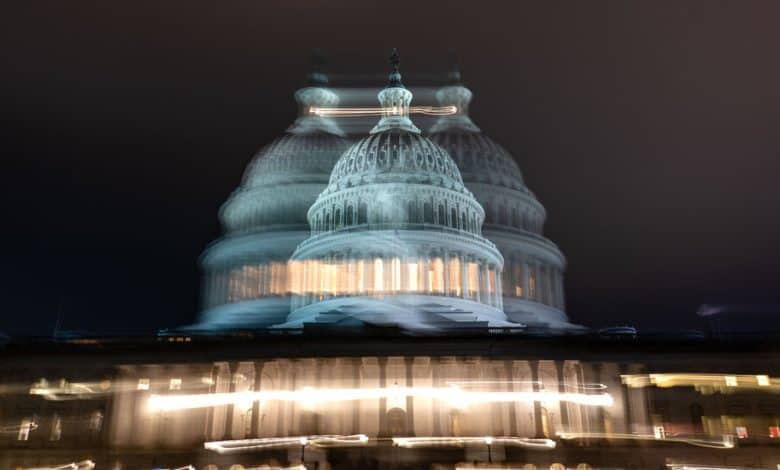The Latest Impeachment Is History, but the Political Repercussions Will Live On

Senate Republicans outraged at Democrats’ quick move to kill the impeachment of Alejandro N. Mayorkas without a trial warn that the precedent set could give rise to a nightmare scenario for Democrats in the future.
It would go something like this: Democrats in control of the House move to impeach and remove an out-of-control Republican president. Republicans who lead the Senate label the charges woefully flawed and well below the “high crimes and misdemeanors” standard established in the Constitution. They dispose of the counts without so much as a hint of a trial.
While names weren’t being named, it was lost on absolutely no one on Capitol Hill that the alignment of a Democratic House, a Republican Senate and a Republican president is at least conceivable next year, with the White House possibly occupied by the already twice-impeached Donald J. Trump and both chambers potentially under new management. Republicans urged Democrats to pay heed.
Democrats’ decision to dismiss the impeachment charges without an airing of the case “means the next time a president is impeached by the House, that a majority in the Senate of the same political party as the president could just refuse to try the case,” said Senator John Cornyn, Republican of Texas and one of two men seeking to be the party leader in the next Congress.
Democrats say it was Republicans who were abusing the once-rare and deadly serious process of impeachment by using it to try to remove an administration official over a policy disagreement on immigration and border security. The real mistake, they argue, would have been to treat the case Republicans brought against the homeland security secretary as legitimate, rather than a thinly veiled attempt to amplify border security as a political issue and create chaos in the Senate.
“If we start cheapening impeachment, which is what they’ve done by letting a policy issue become impeachment, there will be impeachment all the time,” Senator Chuck Schumer, Democrat of New York and the majority leader, said in an interview. “It will allow the House to tie up the Senate.”
